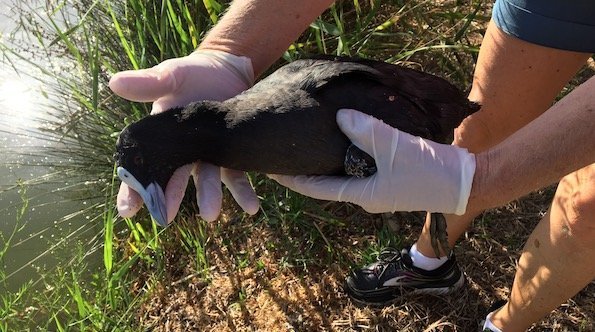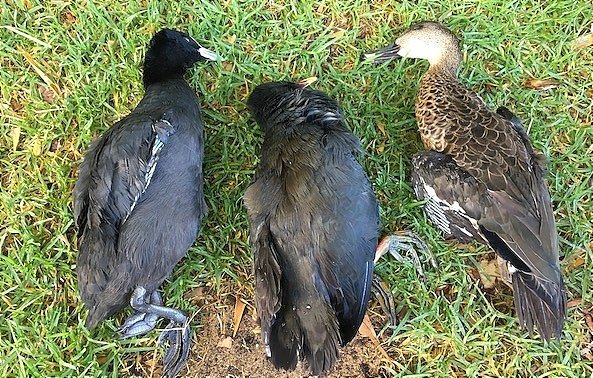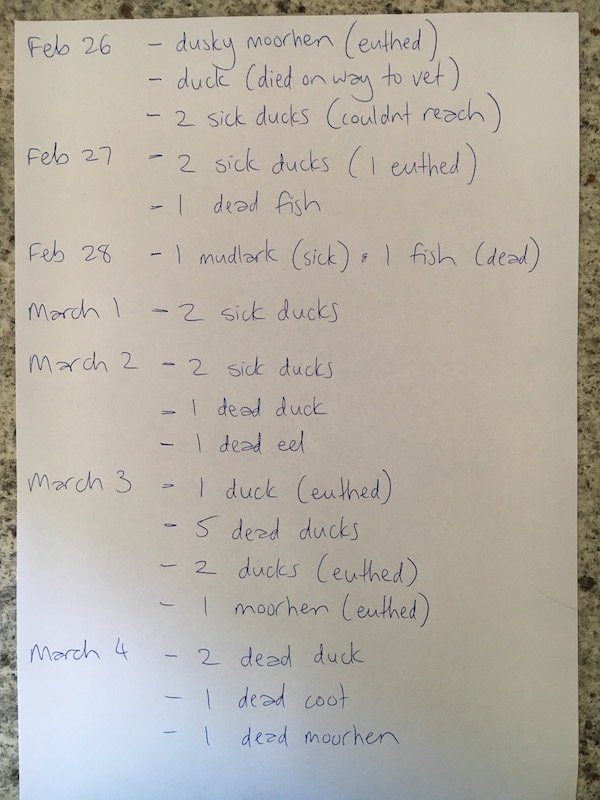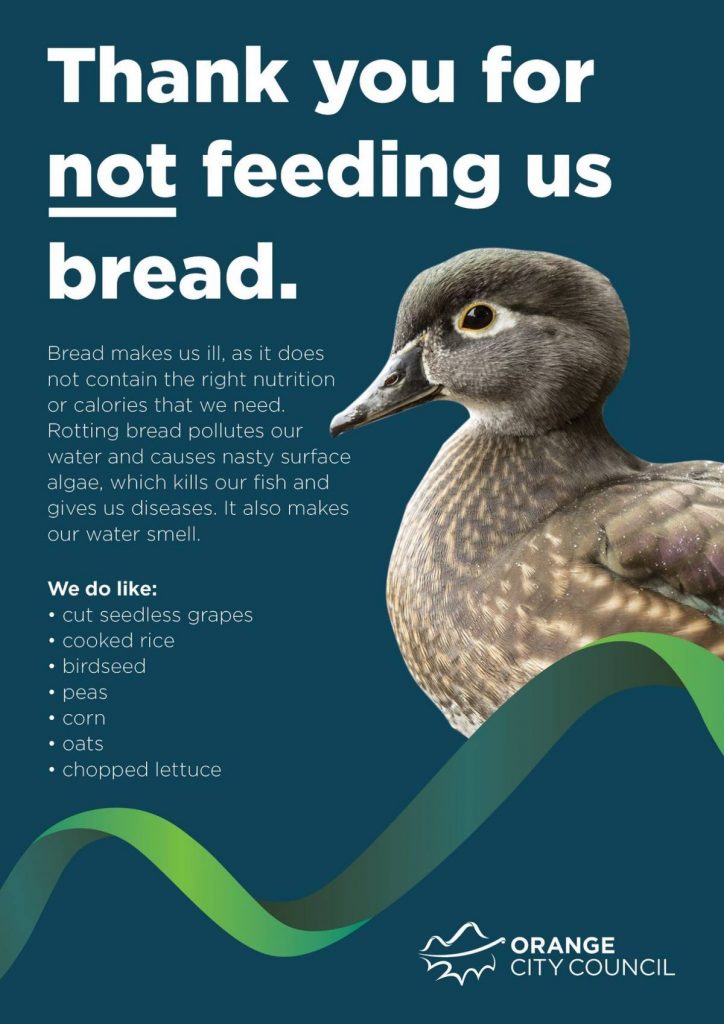
Carol Altmann – The Terrier
Within the calm surrounds of Lake Pertobe, there is a mass killing underway and not enough is being done to stop it.
More than 100 birds have been wiped out since an outbreak of avian botulism began to claim the birds of Lake Pertobe five weeks ago – among them ducks, cygnets, moorhens, Eurasian coots, cormorants, swans, seagulls and a crane – and the death toll is still climbing.
Most visitors to Lake Pertobe are blissfully unaware that just metres from where they are enjoying the open spaces, there are native birds unable to hold their necks up from the creeping paralysis of the botulism toxin.
These birds will most certainly drown. (Warning: the video below may be distressing).
Wildlife rescue volunteer Alexis Creed-Sycopoulis has been walking the accessible parts of the lake shore most days, and often twice a day, to collect the carcasses and the stricken, paralysed birds which she takes to the vet to be euthanised.
It is a heartbreaking job, but a critical one, as the science shows that every dead bird left in the water contaminates it only further. The threat is even greater if the carcass has become flyblown.

I joined Alexis on one of her morning pick ups, during which she found four carcasses within half an hour. Another two would be found when she returned later that night. Last Sunday, the grim count included several birds covered in maggots.
“I shouldn’t have to be doing this. I really shouldn’t have to be out here doing the work of the council to make sure these birds are not left in the water,” Alexis says.
The Warrnambool City Council parks and gardens team at Lake Pertobe also collects the dead and dying birds, but there are just not enough workers allocated to the job.
This was proven last weekend, when Alexis left a bag of dead ducks she had collected on Sunday morning at the small council depot at Lake Pertobe, thinking they would be disposed of by staff when they arrived later that day.
The bag was still there when Alexis returned on Monday morning. So were the flyblown carcasses, still in the water. There had been no council check of Lake Pertobe on Sunday, even after the two-day heatwave.

And this morning, Tuesday, Alexis found a dead duck floating in the lake at 10am, hours after the morning pick-up should have started. Meanwhile, up in town, four parks and garden staff were tending to a roundabout.
The council’s small Lake Pertobe team is no doubt trying its best, but they have many tasks, and retrieving dead birds is just one of them. Alexis is also trying her best, but she is a volunteer, with a job and kids.
Meanwhile, the avian botulism continues its deadly march in the warm, soupy conditions of Lake Pertobe that follow days of little rain, hot weather and a build-up of rich nutrients in the water.
While nature controls the first two conditions – heat and no rain – we can reduce the nutrients.

It is for this reason that Alexis is also pushing for an immediate council ban on feeding ducks bread within Lake Pertobe and elsewhere, as has been done by other councils.
Bread can be easily replaced by other duck-friendly foods, but so far the council is reluctant to issue such a ban, saying there is no proof that bread kills ducks.
Well, no, bread doesn’t kill ducks – although I am not sure how good processed bread is for them either – but it also doesn’t help Lake Pertobe to get healthy and adds to the conditions that cause avian botulism.
I suspect if the 100 dead birds found so far were all laid out on the Civic Green, we would all be justifiably horrified and asking the council to throw everything it can at the disaster.
For now, however, that burden sits largely on the shoulders of one or two people and the mortality rate grows higher.
(In the time it took me to write this story today, another nine birds were found by Alexis, including four that needed to be euthanised. The total is now 105 110.)
If you would like to see The Terrier keep digging up, sniffing out and chewing on local issues, please make a small contribution below.


So ,so sad. Shame on this council for allowing the contamination to continue by not removing dead & dying birds.
Shame on them also for not knowing that bread does harm birds.
Water appears quite stagnant too, which doesn’t help the unhealthy situation which presently exists. The lake needs a good flush.
I’ve been told that what appeared to be a dead pelican was sighted at Point Ritchie. Whether or not it was a pelican and in turn linked to these deaths, such a loss is awful for Warrnambool as there are so few of these in the area.